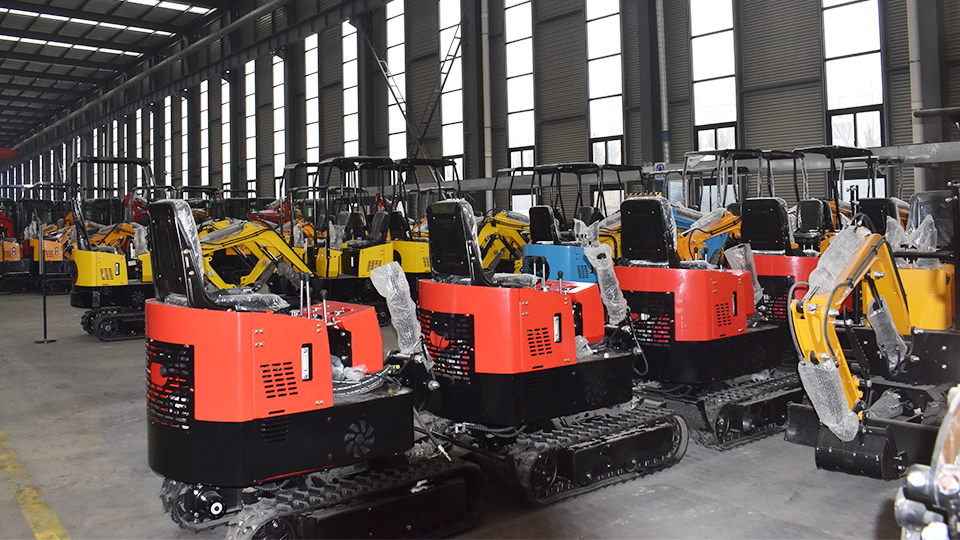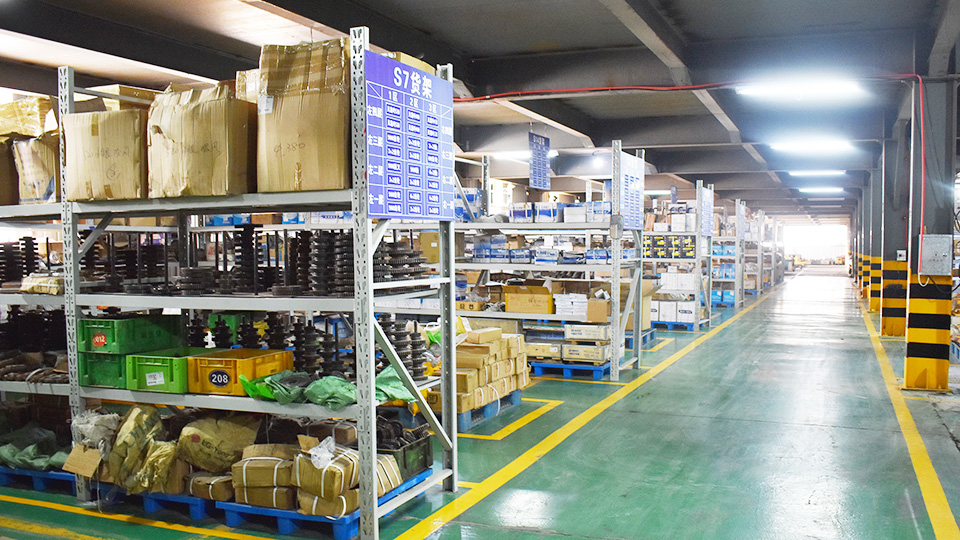The purchase of an excavator represents a significant capital investment for construction companies, contractors, and even large-scale agricultural operations. These versatile and powerful machines are indispensable for a wide array of tasks, from digging and trenching to demolition and material handling. However, the question of "how much does an excavator cost?" is far from simple. The price tag can vary dramatically based on a multitude of factors, making it crucial for prospective buyers to understand the intricacies of excavator pricing to make informed decisions. This technical article delves into the key elements that influence the cost of an excavator, providing a comprehensive breakdown of price ranges across different types and sizes, and offering insights into related expenses.
The Primary Determinants of Excavator Cost
Several fundamental factors dictate the base price of an excavator:
Size and Operating Weight: This is arguably the most significant factor. Excavators are categorized by their operating weight, which directly correlates with their digging force, lifting capacity, and overall size.
Mini-Excavators (0-6 metric tons): These compact machines are ideal for working in confined spaces and for smaller tasks. Their prices typically range from $20,000 to $100,000+ for new models, with the higher end reflecting larger mini-excavators with advanced features. Used mini-excavators can be found for significantly less, depending on age and condition.
Compact Excavators (6-10 metric tons): Offering a balance of power and maneuverability, these excavators are popular for utility work and residential construction. New models generally cost between $70,000 and $150,000+.
Small Excavators (10-20 metric tons): Suitable for a wider range of construction and excavation tasks, these machines command prices from $120,000 to $250,000+ for new units.
Medium Excavators (20-35 metric tons): These are workhorse machines found on many construction sites, offering significant digging power and reach. New medium excavators typically range from $200,000 to $400,000+.
Large Excavators (35+ metric tons): Used for major infrastructure projects, mining, and heavy construction, these powerful excavators can cost anywhere from $350,000 to well over $1,000,000 for new, top-of-the-line models.

Brand and Manufacturer: The reputation, reliability, and technological advancements associated with different brands significantly impact pricing. Established and well-regarded manufacturers like Caterpillar, Komatsu, John Deere, and Volvo often command higher prices due to their perceived quality, dealer support, and resale value. Newer or less established brands might offer more competitive pricing.
Features and Technology: Modern excavators come equipped with a wide array of features and technological advancements that influence their cost. These include:
Engine Power and Emissions Standards: More powerful engines and those meeting the latest emission regulations (e.g., Tier 4 Final) generally increase the price.
Hydraulic Systems: Advanced hydraulic systems offering greater efficiency, precision, and power contribute to higher costs.
Operator Comfort and Safety: Features like air conditioning, ergonomic seating, advanced control systems, and safety features (e.g., rollover protective structures - ROPS, falling object protective structures - FOPS) add to the price.
Telematics and GPS Systems: Integrated systems for tracking machine location, performance data, and maintenance schedules can increase the initial cost but offer long-term operational benefits.
Quick Couplers: These devices allow for rapid attachment changes and are a common add-on, increasing the overall price.
Undercarriage Type: Tracked excavators are more common, but wheeled excavators offer greater mobility on paved surfaces and have a different pricing structure. The type and quality of the tracks or tires also affect the cost.
Boom and Stick Configuration: Different boom and stick lengths affect reach and digging depth, influencing the price. Articulating booms can also add to the cost.
New vs. Used Condition: As with any major asset, the difference between buying a new excavating contractors and a used excavator is substantial. Used excavators can offer significant cost savings, but their price depends heavily on:
Age and Operating Hours: Newer machines with fewer hours will command higher prices.
Condition and Maintenance History: Well-maintained excavators with documented service records will be more expensive than those with signs of neglect or damage.
Market Demand: The demand for specific makes and models in the used market can fluctuate, affecting prices.
Illustrative Price Ranges (New Excavators - Approximate)
To provide a clearer picture, here are approximate price ranges for new excavators based on their size class in the United States as of early April 2025. Please note that these are general estimates and can vary based on brand, features, and dealer pricing:
Mini-Excavators (0-3 metric tons): $20,000 - $50,000
Mini-Excavators (3-6 metric tons): $50,000 - $100,000+
Compact Excavators (6-8 metric tons): $70,000 - $120,000+
Compact Excavators (8-10 metric tons): $100,000 - $150,000+
Small Excavators (10-15 metric tons): $120,000 - $200,000+
Small Excavators (15-20 metric tons): $180,000 - $250,000+
Medium Excavators (20-25 metric tons): $200,000 - $300,000+
Medium Excavators (25-35 metric tons): $280,000 - $400,000+
Large Excavators (35-50 metric tons): $350,000 - $600,000+
Large Excavators (50+ metric tons): $550,000 - $1,000,000+ (and upwards)
Additional Costs Beyond the Purchase Price
The initial purchase price is just one component of the total cost of owning and operating an excavator. Buyers must also factor in the following expenses:
Attachments: Buckets (various sizes and types), hydraulic hammers, grapples, augers, and other attachments are often necessary for specific tasks and can add significantly to the overall investment. Prices for attachments can range from a few thousand dollars to tens of thousands depending on the type and size.
Transportation: Transporting excavation contractors from the dealer or seller to your job site can be costly, especially for larger machines requiring specialized lowboy trailers and permits.
Insurance: Comprehensive insurance coverage is essential to protect your investment against damage, theft, and liability. Insurance costs vary based on the value of the machine, the type of coverage, and your location.
Maintenance and Repairs: Regular maintenance (oil changes, filter replacements, undercarriage inspections) and unexpected repairs are inevitable. Budgeting for these costs is crucial. New excavators under warranty may have lower initial repair costs, but used machines can have more unpredictable maintenance needs.
Fuel: Diesel fuel is a significant operating expense for excavators. Fuel consumption varies based on the size of the machine, the engine load, and operating conditions.
Operator Training: Ensuring that operators are properly trained and certified is essential for safety and efficiency. Training costs should be factored into the overall budget.
Financing Costs (if applicable): If you finance the purchase, you will incur interest charges and other financing fees. Carefully consider the total cost of financing over the loan term.
Depreciation: Like all heavy equipment, excavators depreciate in value over time. This is a non-cash expense but is important to consider for long-term financial planning and resale value.
Strategies for Managing Excavator Costs

Thorough Needs Assessment: Accurately determine the size and features you truly need to avoid overspending on unnecessary capabilities.
Consider Used Options: If your budget is tight, a well-maintained used excavator can offer significant savings. Conduct a thorough inspection and review maintenance records.
Shop Around and Compare Quotes: Obtain quotes from multiple dealers and sellers for both new and used excavators.
Negotiate Price: Don't be afraid to negotiate the price, especially on used equipment or when purchasing multiple units or attachments.
Evaluate Financing Options Carefully: Compare interest rates and terms from different lenders to secure the most favorable financing.
Factor in Total Cost of Ownership: Consider not just the purchase price but also the long-term costs of maintenance, fuel, insurance, and potential repairs.
Consider Renting for Short-Term Needs: If you only need an excavator for a specific, short-term project, renting might be a more cost-effective option than purchasing.
Conclusion: Making an Informed Investment
The cost of an excavator is a significant investment influenced by a complex interplay of size, brand, features, and condition. Understanding these factors and the associated ownership expenses is crucial for making an informed purchasing decision. By conducting thorough research, accurately assessing your needs, and carefully evaluating your options, you can acquire the right excavator at a price that aligns with your budget and operational requirements. Remember that the long-term value and productivity of the machine should be weighed against its initial cost to ensure a sound investment.
Post time:Sep-25-2020
